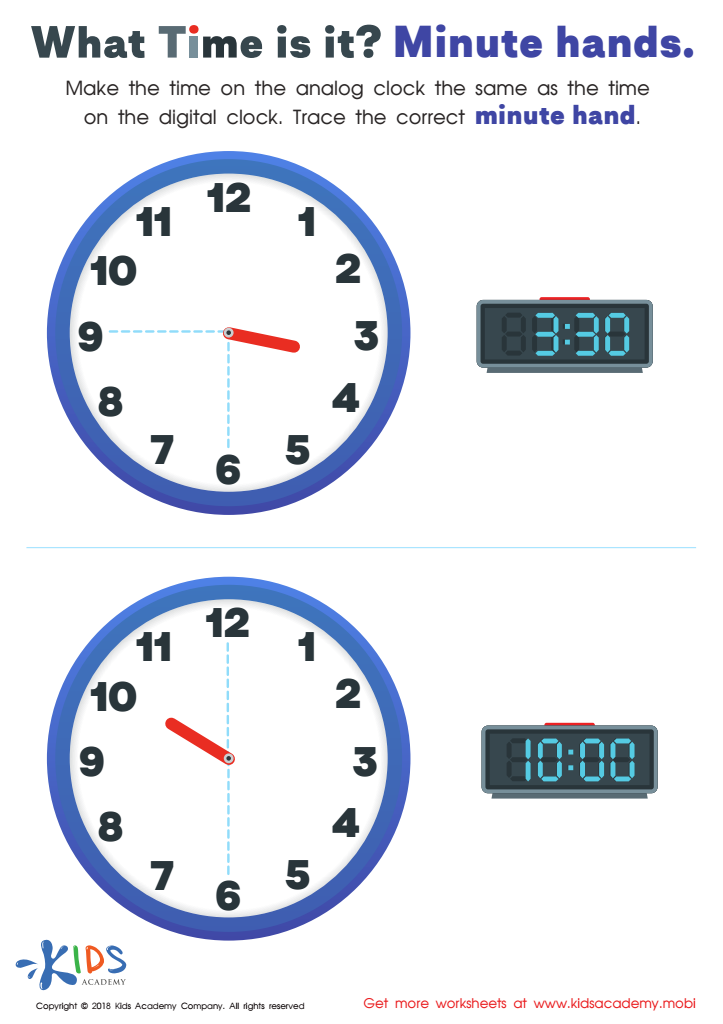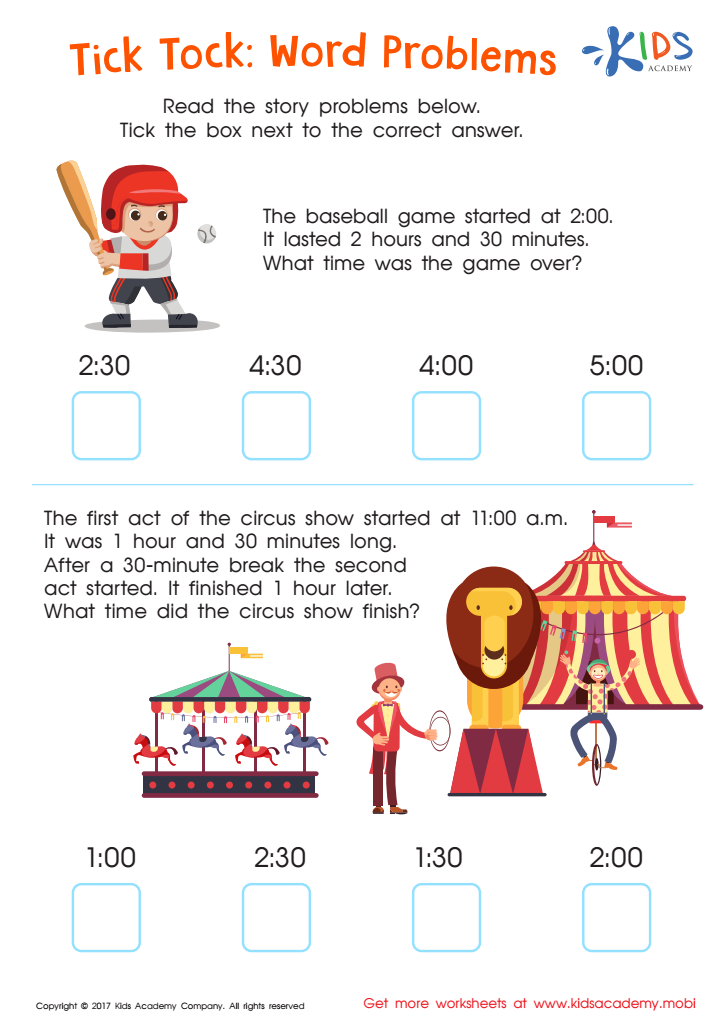Time calculation skills Math Worksheets for Ages 3-8
3 filtered results
-
From - To
Enhance your child's understanding of time with our engaging Time Calculation Skills Math Worksheets, specially designed for ages 3 to 8. These worksheets provide fun, interactive activities that help young learners grasp essential time concepts, such as reading clocks, understanding hours and minutes, and daily routines. With colorful illustrations and age-appropriate challenges, children will develop essential math skills while enjoying their learning experience. Our worksheets cater to various learning styles, ensuring that every child can engage with and master time-telling effectively. Start your child's journey to becoming a time-savvy learner today with our comprehensive collection of worksheets!


What Time Is it? Minute Hands Worksheet


Tick Tock Word Problems Time Worksheet
Time calculation skills are critical for children aged 3-8, forming a foundation for mathematical understanding and daily life management. Developing these skills enhances a child's ability to comprehend concepts such as counting, sequencing, and understanding intervals, which are integral to effective problem solving. Learning about time helps children organize their days, manage responsibilities, and understand the concept of routine, which contributes to their overall sense of security and stability.
Incorporating time-related activities fosters essential cognitive skills and encourages critical thinking. For instance, activities such as using timers for tasks or creating simple schedules teach children not just how to tell time, but also the value of planning and prioritization.
For parents and teachers, fostering time calculation skills can significantly aid in classroom and home learning environments, facilitating smoother transitions and improved focus. These skills also offer opportunities for engaging children through fun tasks like countdowns, learning about days of the week, or using calendars. Ultimately, investing in developing time skills supports children’s emotional regulation and independence, preparing them for future academic challenges and day-to-day life in an increasingly fast-paced world.
 Assign to My Students
Assign to My Students








.jpg)
.jpg)












